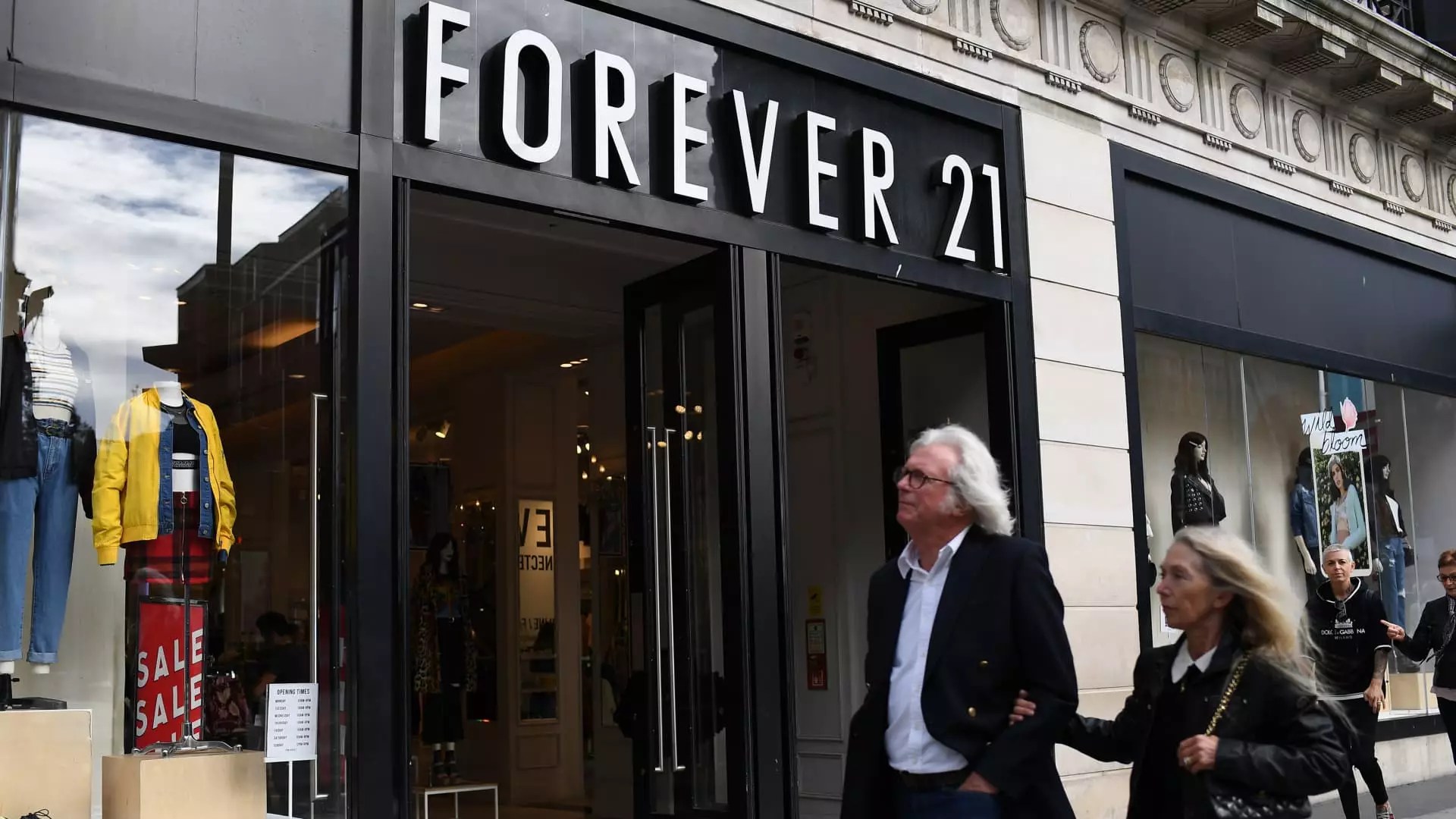Forever 21, a once prominent fast fashion player, is now facing a myriad of challenges as it struggles to keep up with competitors in an oversaturated market. With more than 380 stores in the U.S., the retailer has asked landlords for a significant reduction in rent, demonstrating the extent of its financial difficulties. Despite its efforts to restructure leases and cut costs, Forever 21 continues to grapple with issues such as inventory management, understanding consumer trends, and responding to market demands.
After filing for bankruptcy in 2019, Forever 21 was acquired by a consortium that included Authentic Brands Group, Simon Property Group, and Brookfield Property Partners. The retailer’s rapid expansion in the past left it with a bloated store footprint, which significantly impacted its financial health. Even after closing hundreds of stores, Forever 21’s financial position has not improved, leading to challenges for its operator Sparc Group, a joint venture with Authentic Brands Group, Simon Property Group, and the fast fashion giant Shein.
One concerning aspect of Forever 21’s financial struggles is its pattern of consistently paying vendors late. Data from Creditsafe indicates that the retailer’s payment delays have ranged from 12 to 13 days past due, with some bills exceeding 70 days past due. Late payments can be indicative of larger financial troubles within a company, and Forever 21’s payment patterns raise red flags about its overall financial stability.
Rise of Ultra-Fast Fashion Retailers
In the ever-evolving landscape of fast fashion, traditional players like Forever 21 are facing stiff competition from ultra-fast fashion retailers like Shein and Temu. These digital-first companies have revolutionized the industry by offering on-demand manufacturing, rapid trend responses, and high-quality products. The speed and agility of these new players have posed a significant challenge to legacy brands like Forever 21, making it difficult for them to compete in the current market.
The Mistake of Acquiring Forever 21
Authentic Brands Group CEO Jamie Salter admitted that acquiring Forever 21 was a major misstep in his career, citing the competitive threat posed by Shein and Temu. Salter recognized the superior supply chain and operational efficiency of these rival brands, highlighting the difficulty of competing with their speed and innovation. Despite efforts to partner with Shein, Forever 21 continues to struggle, with Salter acknowledging the need for collaboration rather than competition in the fast fashion industry.
The Future of Forever 21
As Shein continues to outperform traditional retailers like Forever 21, questions arise about the future of the struggling brand. While Shein’s success with pop-up stores and co-branded collaborations has driven foot traffic to Forever 21 locations, the potential takeover of the retailer’s stores seems unlikely. Shein’s business model, focused on small-batch production and trend-driven inventory, may not align with the physical retail experience that Forever 21 offers.
Forever 21 serves as a cautionary tale in the fast fashion industry, highlighting the importance of adapting to changing consumer preferences, streamlining operations, and embracing innovation. As the retail landscape continues to evolve, legacy brands must learn from the mistakes of their predecessors and find ways to differentiate themselves in a highly competitive market. Failure to do so may result in the decline and eventual demise of once-prominent players like Forever 21.


Leave a Reply